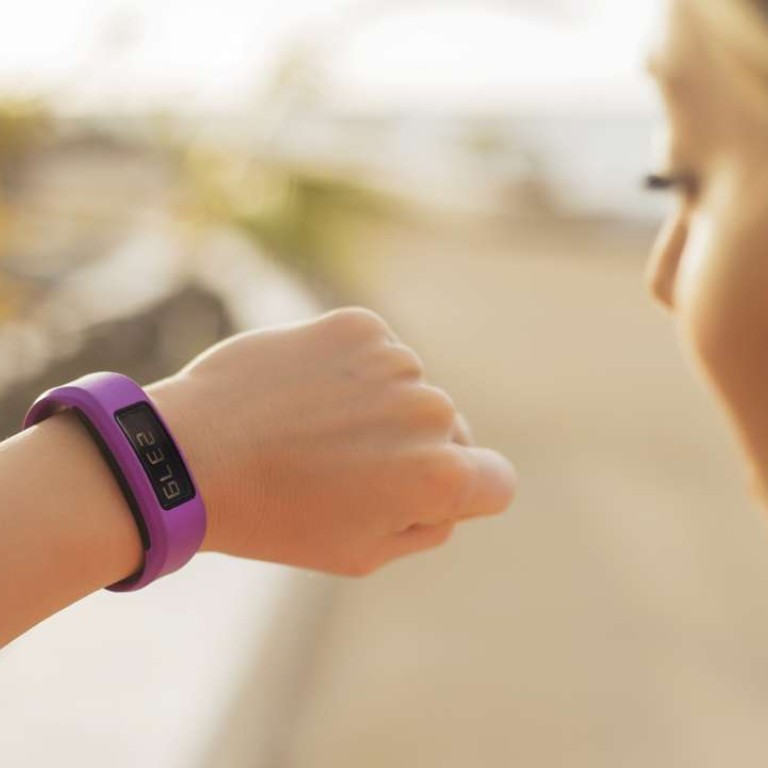
Why loneliness is in our genes, and counselling beats fitness bands for weight loss
Two-year study of overweight and obese shows activity trackers are no substitute for counselling to achieve weight loss. In other health news, stress appears to undo the benefits of eating good fats
Fitness trackers have become popular tools to motivate people and to monitor their physical activity. But a two-year trial involving overweight and obese adults has found these tech devices to be ineffective at sustaining weight loss, and inferior to traditional weight loss approaches that include behavioural counselling on exercise and diet. In fact, at the end of the study, participants who used activity trackers along with behavioural counselling reported about half the weight loss of those who received only counselling – an average loss of 3.5kg versus 6kg.
“Therefore, within this context, these devices should not be relied upon as tools for weight management in place of effective behavioural counselling for physical activity and diet,” says John Jakicic, who led the research team from the University of Pittsburgh School of Education’s Department of Health and Physical Activity.
The study, published in JAMA: The Journal of the American Medical Association, followed 470 individuals in the US between the ages of 18 and 35 with a body mass index between 25 and 39 at the start of the trial. About 77 per cent of participants were women and 29 per cent were from minority communities. All participants were placed on low-calorie diets, prescribed increases in physical activity, and received weekly group counselling sessions on health and nutrition. Weight was assessed at six-month intervals throughout the 24-month trial.
At the first six months, participants were divided into two subgroups: one continued the counselling on a monthly basis and the other received a wearable device to monitor diet and physical activity. A website was designed to monitor results.
Over the course of the subsequent 18 months, both groups showed significant improvements in body composition, fitness, physical activity and diet, with no significant difference between groups. However, those who received counselling lost nearly twice as much weight as the wearable device group.

Study finds loneliness is a heritable trait
Loneliness is linked to poor physical and mental health, and is an even more accurate predictor of early death than obesity. And a new study has found that up to 27 per cent of loneliness – as a lifelong trait, not a temporary state – is due to genes.
Researchers from the School of Medicine at the University of California, San Diego examined genetic and health information from 10,760 people aged 50 years and older that was collected by the US Health and Retirement Study. Participants answered three questions that measure loneliness: How often do you feel that you lack companionship? How often do you feel left out? How often do you feel isolated from others? The study accounted for gender, age and marital status.
“For two people with the same number of close friends and family, one might see their social structure as adequate while the other doesn’t,” says lead researcher Abraham Palmer, a professor of psychiatry. “And that’s what we mean by ‘genetic predisposition to loneliness’ – we want to know why, genetically speaking, one person is more likely than another to feel lonely, even in the same situation.”
The tendency to feel lonely over a lifetime was found to be a modestly heritable trait – 14 to 27 per cent genetic. The researchers also determined that loneliness tends to be co-inherited with neuroticism (long-term negative emotional state) and a scale of depressive symptoms.
Palmer and the team are now working to find a genetic predictor – a specific genetic variation that would allow researchers to gain additional insights into the molecular mechanisms that influence loneliness.

A tough day could erase the benefit of choosing ‘good’ fat sources, study finds
“Good fat” is better than “bad fat”, but a new study finds no difference between the two if you’ve eaten when stressed. Unstressed women who ate a breakfast made mostly with saturated fat fared worse in blood tests looking for precursors to disease than women who ate an identical breakfast made primarily with monounsaturated sunflower oil. But when participants had a stressful event before the breakfast test, this appeared to erase any benefits linked to the healthy fat choice, say researchers from Ohio State University in the US.
“It’s more evidence that stress matters,” says Janice Kiecolt-Glaser, lead author of the study and a professor of psychiatry and psychology.
The study participants – 38 breast cancer survivors and 20 others – were, on average, 53 years old. The women were randomly assigned to one of the two breakfasts, each containing 930 calories and 60 grams of fat. They were asked about the previous day’s experiences and the researchers used the Daily Inventory of Stressful Events questionnaire to determine if the woman was under stress. Blood was drawn multiple times from the women, and the researchers looked at two markers of inflammation – C-reactive protein and serum amyloid A – and two markers called cell adhesion molecules that could predict a greater likelihood of plaque forming in the arteries.
All four unhealthy markers were higher following the saturated fat meal than the sunflower oil meal, and researchers accounted for factors such as blood levels before the meals, age difference, abdominal fat and physical activity. In those women who had stressful days, the difference disappeared.

